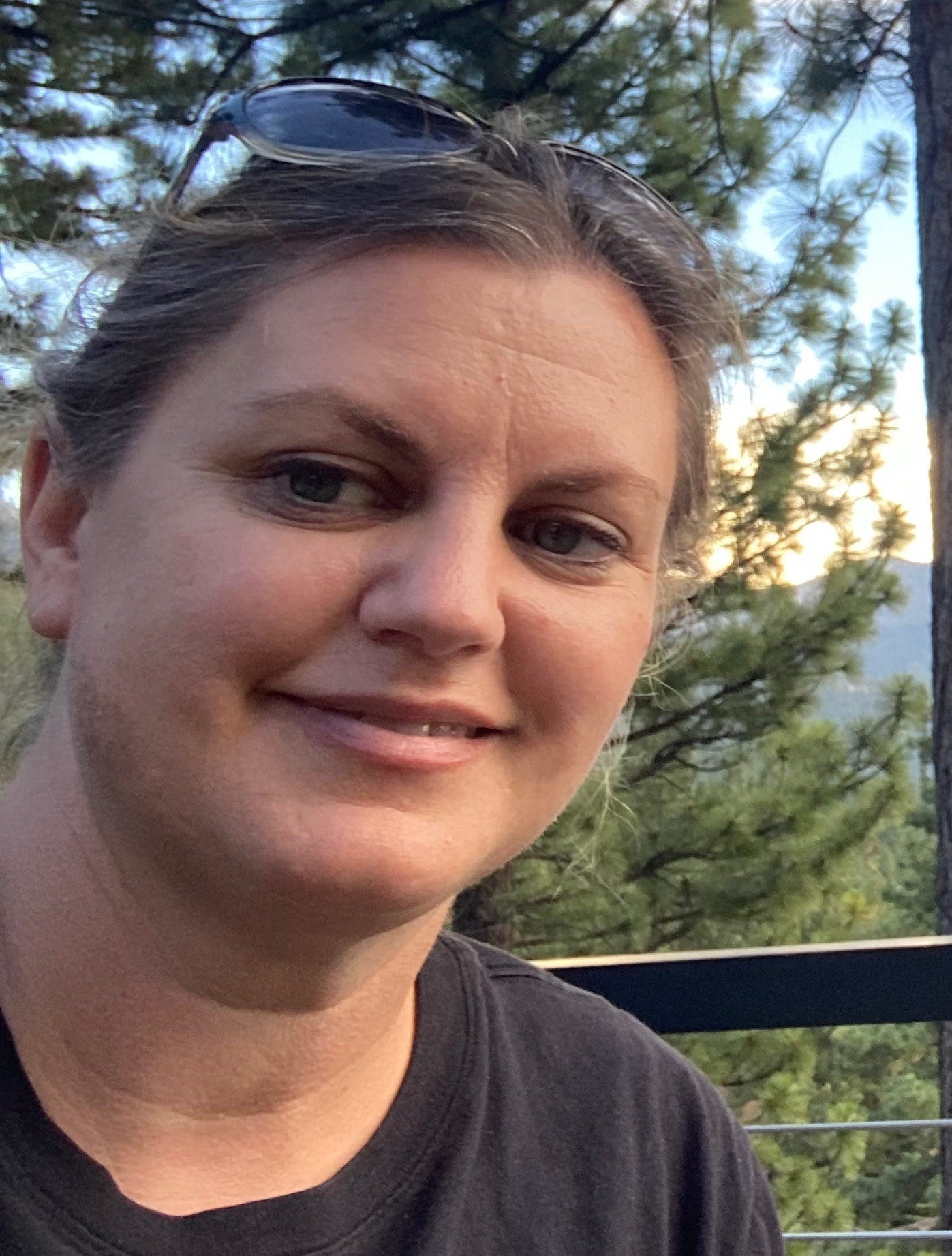A Hospital Bullied a Mom With an Overpriced Medical Bill. She Bullied 'Em Back.
Leslie Donovan followed the blueprint I laid out in “Never Pay the First Bill” to sue Sutter Health, leading to a refund and cleared balance.
Nothing beats suing a hospital in small claims court to get its attention.
Leslie Donovan tried for months to get Sutter Health to address her concerns about an unfair and overpriced medical bill. She lives in the San Francisco Bay Area and about a year ago, she feared she had kidney stones. Her doctor referred her for two ultrasounds to Eden Medical Center, which is run by Sutter Health. The tests turned out negative, and the pain in her side went away. Then the bills arrived – becoming a new source of pain.
Hospital imaging centers are notoriously overpriced. Whenever you can, go to an independent one. But Sutter Health, a Northern California chain with 23 hospitals, has earned a special reputation for driving up prices. In August, the California Attorney General’s office announced final approval of a $575 million settlement with Sutter Health for alleged anticompetitive behavior that raised prices for consumers. A few days later, the U.S. Department of Justice announced that Sutter would pay $90 million to settle alleged violations of the False Claims Act.
In Donovan’s case, Sutter charged $2,234 for the two ultrasounds. Her insurance plan paid $585, and that left her with a bill for $1,648.
Donovan had a strong sense that the prices were unfair. She complained in multiple phone calls and emails to the Sutter Health billing department. Initially she argued that they should have given her a price estimate up front. She also said they should have clarified that she could have gone to a different imaging center, where prices would be lower. She even sent a letter by certified mail to the hospital CEO.
In return, Donovan said she only heard excuses. Sutter said the pricing was market rate, according to screen shots she saved of the conversations. The hospital also said Donovan had the scans within a couple of days of the referral from the doctor. As if that should matter. It hadn’t been an emergency, but Sutter called it a “promptly scheduled service.” When Sutter threatened to send her to collections, Donovan started making $100 monthly payments.
Donovan is 52 and a mom to five children. She’s spent decades taking care of her family and carefully looking after their dollars. She’s not a person who backs down when things are not right. Each time the Sutter Health billing department brushed her off, she got more determined.
Then Donovan heard me interviewed by Dr. Zubin Damania, the physician and social media influencer who goes by the nickname ZDoggMD. Damania and I were talking about my book, “Never Pay the First Bill: And Other Ways to Fight the Health Care System and Win.” The book is a step-by-step guide for fighting inaccurate and overpriced medical bills, among other things. The ultimate secret weapon, as Donovan would discover, is small claims court.
Donovan bought “Never Pay the First Bill,” and in the following months she put my action steps into practice. I show in the book how you can check prices, to see if you’re being overcharged. Donovan called a nearby independent imaging center where she had also been a patient and found its price would have been about $240 for the two tests. The Sutter price had been almost ten times higher! The website FairHealthConsumer.org, which I recommend in the book, puts its low-end estimate for the tests at about $200.
Donovan said she looked up Sutter’s own online cost estimator tool and it priced the two scans at $496. Sutter was charging her more than four times its own estimate!
Donovan now knew just how badly she was being overcharged. That’s powerful information. It quantifies the harm being done and provides conviction to fight for a fair deal.
In chapter five of “Never Pay the First Bill” I show how small claims court can help patients who are getting ripped off and getting the runaround. It’s a consumer-friendly venue for health care billing disputes – where rules created by mighty institutions stack the deck against patients. Small claims courts exist in every state and are easy to find online. They are low cost because the consumer doesn’t need to hire an attorney. Plus, if you follow the steps in my book, as Donovan did, you’ve gathered the evidence you need to show that you’re being overcharged.
Small claims court also appeals to me because I love showing patients how to stand up for themselves against these health care giants. Usually, we hear about hospitals suing patients for unpaid medical bills. When a patient sues a hospital or other unfair medical biller it flips the script. In journalism, we’d call a this a “man bites dog” story, because it’s not what people expect.
Donovan followed the steps in my book like a star student. “Never Pay the First Bill” includes a template for a warning letter a consumer can send to the entity sending the bills. It says that if the bill doesn’t get corrected the consumer will file a lawsuit. The warning letter is an important step. If you do go to court, you want to be able to show the judge that you did everything you could to be fair and to avoid wasting the court’s time. Often the warning letter will be enough to bring a matter to a conclusion that’s fair for the patient. Donovan sent the warning letter, but Sutter still didn’t budge.
Sutter left Donovan with no other option. Thus, in early December, Donovan filed her claim in Superior Court of California for Alameda County: Leslie H Donovan v. Sutter Health Billing Department.
About 10 days after she filed her case, Donovan heard from a supervisor in the billing department. The supervisor did not mention the lawsuit. But he said they had “looked into the matter” and seen that the hospital had not followed procedure by providing a price estimate when she got the ultrasounds. That frustrated Donovan because that’s what she had been saying all along. But finally, she got the answer she wanted. Sutter would waive the balance of the bill, the supervisor said, and refund the $400 she had already paid. “Patient overpaid,” the description on the refund said.
I prevailed!!” she wrote to me in a March 1 email that she punctuated with celebration emojis. “The only thing that gave them pause was the small claims court notice!”
Donovan agreed to waive her HIPAA privacy rights for the sake of this column, so Sutter Health could tell me its side of the story. I called the Sutter media relations number and left a detailed message, but they did not return my call.
Sutter did not share how the lawsuit affected its decision making. But I can tell you how it’s worked out with other patients who I have walked through the process. A small claims lawsuit creates a court date, so there’s a deadline. It requires the hospital or other unfair biller to respond. There’s accountability: the hospital will be required to defend its billing practices in front of an unbiased judge. It raises the stakes for future cases. If the hospital loses then there’s a precedent of an independent authority saying its bills were unfair. The limits vary from state to state, but in some places they are quite high. In Texas, where I now live, the limit is up to $20,000! Nolo Press has an awesome guide for each state, and an overview of the basics, with an FAQ.
A small claims case also boosts the leverage for the consumer in other ways. It likely requires the hospital to hire an attorney at a cost of hundreds of dollars an hour, for a case that would be inexpensive to resolve. It forces the hospital to dig into the billing issues and untangle them, which takes hours of work. That also costs money. I like to say that small claims court gives price gouging medical providers the incentive they need to treat patients with the fairness they deserve.
The goal of a patient’s small claims court complaint is not to go to court. The goal is to get it settled in a way that’s fair for both parties before it goes before a judge. My book documents successful cases and patients like Donovan have used it as a guide. I’ve also helped multiple patients through the process. If you need help, contact me through my website, marshallallen.com.
Donovan said it felt great to save $1,648 and beat back a health care giant. She recommends small claims court to other patients. But it also feels unethical, she said, to have to go to small claims court to be heard. Many patients would not have the time and determination to go that far. In a way she felt like she was also fighting for these disadvantaged patients. Vulnerable patients, “will get taken advantage of if no one will fight this system,” Donovan said.
“Never Pay the First Bill” is “absolute GOLD”
It’s such a delight for me to read these Amazon reviews. You can get the book here. And if you’ve read it and liked it, please write a review. They give the book a big credibility boost.
Subscriber update
I’ve had so much fun writing this newsletter and I love seeing how it’s helping people learn and advocate for themselves. Last week I wrote about a family that overcame a $183,000 surprise medical bill after a patient advocate showed the bill didn’t comply with state law. I heard from several other patients in other states in situations that might be able to be addressed in a similar way. It’s common for consumers to face unfair or inaccurate bills, insurance company denials and other health care cost problems. They want to be equipped.
This newsletter is free - so please subscribe and encourage others to subscribe. I do invite people to become paid subscribers, and am up to 74 paid subscribers. I am donating all the proceeds to equip patients and hire professional patient advocates for patients in need. Your generosity is going toward a good cause.
Please click the button below to SHARE this post. Let’s let Donovan’s story be an inspiration to others!














In the state of Utah, "The University of Utah Health and Hospitals" is notorious for overcharging patients. However, as per the Utah Law, you cannot sue a governmental entity in small claims court. "Government Immunity" protects them. Unfortunately, "The University of Utah" is classified as a government entity. They hire a law firm called "Strong & Hanni" to shut down any cases raised against them.
Sutter is the only hospital in my small community, they have a bar at most of the health clinics here. My understanding is that they make it just as hard and expensive for the doctors who work in the clinics as they do for patients. I am paying off one of those $1600 MRIs. I will have to get your book.